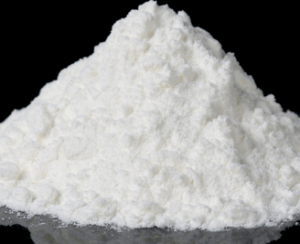Africa still a major transit point for drugs – Report
 Africa is still a key transit point for drug trafficking- a situation that leads to increasing drug abuse among the populaces, the International Narcotics Control Board (INCB) Report 2015 has announced.
Africa is still a key transit point for drug trafficking- a situation that leads to increasing drug abuse among the populaces, the International Narcotics Control Board (INCB) Report 2015 has announced.
The report launched in Accra on Wednesday said West Africa is used by traffickers to smuggle cocaine and other drugs into Europe with North Africa remaining a primary source of drugs entering Europe.
The growing middle class in parts of Africa, especially in countries such as Benin and Namibia have become an emerging market for drugs as traffickers seek and target such class for their illicit trade.
Some of the transit countries which have been used for many decades are also becoming consumer countries.
Cannabis use in Africa also remains high while heroin comes second, with annual prevalence use remaining as high as 7.5 per cent among the population 15- 64 years.
The figure is particularly high in West and Central Africa, recording 12.4 per cent while cannabis remains the primary drug for which people in Africa receive treatment for substance abuse followed by heroin.
Opiates are abused by around 0.3 per cent of the people aged 15-64.
The report, however, indicated that only one out of 18 people who needed treatment from substance abuse received it, although the prevention and treatment of drug abuse are parts of the main provisions of the international drug control conventions.
Established in 1968, the INCB is an independent and quasi-judicial body monitoring and promoting the implementation of the UN drug control conventions.
The report provides a comprehensive overview of drug control in various parts of the World.
According to the report, online trafficking in precursor chemicals was on the rise, saying that had become an additional challenge with the sale of controlled drugs via the internet.
“The increase in online trafficking has made it difficult for law enforcement authorities to identify websites owners and users involved in trafficking precursor chemicals”.
Launching the report, Mr James Agalga, Deputy Minister of the Interior, said the title of the report, “The Health and Welfare of Mankind: Challenges and opportunities for the International Control of Drugs”, is a reminder and a call for the world to combine all efforts to protect the welfare and health of the public.
He said with the continent still leading in drug trafficking and increasing drug use, it could create security challenges in addition to having negative health and social impacts.
Mr Agalga said fighting illicit manufacture and trafficking of narcotic drugs is a shared and common or collective responsibility that would require the efforts of all to tackle and address.
“I am aware that the war on illicit drug trafficking has assumed a sophisticated dimension aided by technological advancement with the support of our partners, I can assure you that Ghana is proud of officers who are up to the task [in dealing with] cyber-narco trafficking”, he said.
Mr Yaw Akrasi Sarpong, Executive Secretary of the Narcotics Control Board (NACOB) said his organisation is currently training personnel as well as partnering with stakeholders and institutions to sanitise Ghana from the drug trade.
He said Ghanaian society needs to do a critical debate decriminalising the cultivation and use of “wee” which is also used for various products that are found in many pharmacies and cosmetics shops the country.
Ms Cynthia Prah, United Nations Information Officer in Accra, said the report was published a few weeks ahead of the special session of the UN General Assembly on the World drug problem slated for April this year.
Source: GNA
